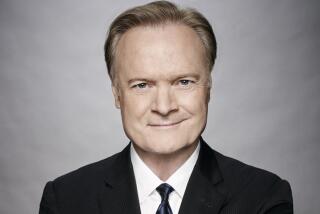CBS Doesn’t Have Time on Its Side
- Share via
It’s becoming more apparent each day that staging the Winter Olympics in Japan wasn’t such a good idea after all, at least not for American television.
The time difference, more than the erratic weather or anything else, is killing CBS, which is on track for the lowest Winter Olympics rating in 30 years.
Through Monday night, CBS was averaging a 16.4 rating and a 27 share, 37% behind the 25.9 rating from Lillehammer and 15% below the 19.2 rating from Albertville.
Monday night’s prime-time coverage, featuring the ice dancing gold medal and day-old coverage of Hermann Maier in the super-giant slalom, got a 15.3 rating with a 23 share.
CBS will need to average at least a 20.0 rating the last six nights or its final rating will be the lowest since a 13.5 from Grenoble in 1968.
Executive producer Rick Gentile said he now realizes the time difference between Japan and the U.S.--14 hours in the East, 17 hours in the West--gives viewers too much time to know results.
“Before this started, I used to say over and over again that the biggest problem would be the weather,” he said. “I was wrong, it was the time.”
CBS is catering to the Eastern time zones, giving Westerners delayed, delayed coverage. An event that may be only slightly delayed in the East is delayed three more hours in the West.
CBS could have shown the U.S. women’s gold-medal victory over Canada in hockey live at 1 a.m. Tuesday in the West but held the game for Eastern viewers until a little after 7 a.m. Of course, it was shown here three hours later.
CBS already has conceded to advertisers that it won’t attain the 19.5 ratings it guaranteed and has started negotiations on make-good, or free, advertisements.
Commercial breaks will be lengthened to make room for the make-goods, although some promos will be dropped to help balance things out, CBS spokesman Dana McClintock said.
The ratings news is not all bad for CBS, which has won every half-hour in prime time since the Olympics began and should make $40 million despite not reaching the 19.5 guarantee.
TNT’s ratings are down about 25% from Lillehammer, but around TNT, which is not as ratings-driven as CBS, the atmosphere is more relaxed.
TNT executives empathize with their CBS counterparts.
“It’s hard to take when you’ve poured your heart into something for the past four years,” said Mike Pearl, TNT’s executive producer who headed CBS’ Winter Olympic coverage in 1992 and 1994.”
More to Read
The biggest entertainment stories
Get our big stories about Hollywood, film, television, music, arts, culture and more right in your inbox as soon as they publish.
You may occasionally receive promotional content from the Los Angeles Times.










